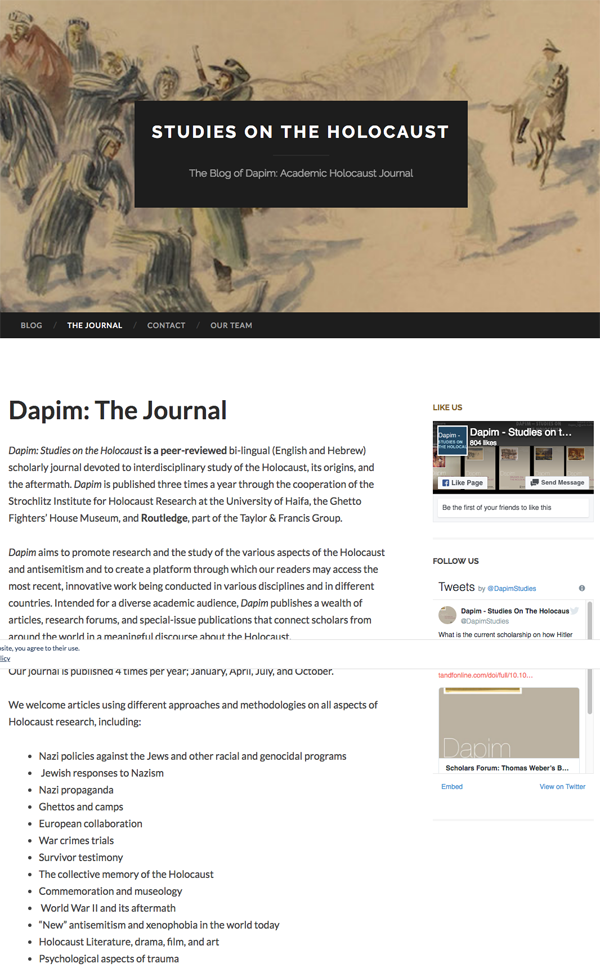, Extortion, Collaboration with theGermans: Polish-Jewish Relations under German Occupation during World War II
In the Polish modern historiography (of the last 15 years), the reflection about the annihilation of Polish Jews is assigned a special and very important position. Up to now more than a thousand books and articles were published on this issue in Poland. In the most recent historical publication, the lower strata of Polish society are accused not only of indifference to the Jewish tragedy, but also of frequent or common collaboration with the Germans in their murderous activities against the Jews. The Polish historians are challenged to better describe everyday life under the German occupation, while paying special attention to the Polish-Jewish relationship. The two nations – Poles and Jews - were prosecuted in the same time, but not to the same extent. In the meantime, Poles and Jews developed separate defense strategies, which, unfortunately, failed to break down ethnic and religious separatism. In my article here I describe on the one hand the process of disintegration of the various links which had bound Poles and Jews before the war, a process that was mostly the result of the repressive policy effected by the Germans, and on the other hand the groovy egoism displayed by different Polish social groups, who were trying to adapt to the current policy or even profit from it. I concur with the view that mutual contacts were not totally severed when Jews were incarcerated in ghettos. However, the existence of ghetto walls further increased the social distance between Poles and Jews. This all is connected to the main theme, which is the balance between helping the persecuted Jews and betraying them. In very general terms, local people came to perceive Jews as a resource that could be harvested at the opportune moment. Occasionally Jews left some property for safekeeping with their Polish neighbors, and when the latter proved trustworthy, the practice helped save the lives of many Jews who went into hiding. But honesty was not the norm, and Jews in hiding or Jewish survivors often discovered that they could not reclaim their property, even from acquaintances. Remarkably, compassion stood out in its absence, even though these Poles knew quite well that a destitute Jew, with nothing to trade for food, was actually condemned to death.













